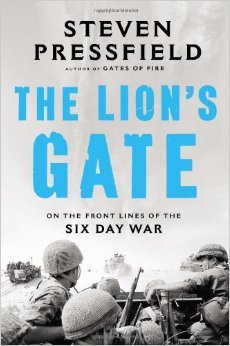Once upon a time I wrote a book about a Vietnam veteran. I was in foreign territory, all right. I knew very little about war, weapons, world history, world geography, and almost anything else that would've helped me translate this man's experience to the printed page.
How do you conduct interviews in that situation? Slowly. I'd ask a question but wouldn't understand the answer. I interrupted almost every exchange with a request for a definition, and interrupted almost every definition with a request for more definitions.
We spent so much time backing up I thought we'd never advance.
Every night after I finished transcribing the most recent interview, my husband went over my notes. One night we came across a reference to an "M-1 car beam." He looked at me. "Car beam?" he asked. "Car beam?" And then, "It's carbine."
Oh.
"Did you really think it was car beam?" he asked.
"It may as well have been lasagna," I fired back.
It was like trying to write a book in Spanish. I can tell you my name, how I'm feeling, and what time it is in Spanish. I can even count to 20 in that language. But that's it. I can't write a book in Spanish, and that's how this task felt.
Left for Dead: A Second Life After Vietnam is written in first person -- as if I'd been the one in combat -- and my biggest contribution was probably attention. I listened so intently during the interviews I almost always got a headache. But slowly, slowly, I figured out what I didn't know, what I needed to know, and how I could share what I learned.
 That's why I was in awe of The Lion's Gate by Steven Pressfield, an account of the Six-Day War told from the perspective of dozens of people who fought in it. It's difficult to imagine keeping all those accounts straight, let alone weaving them into a page-turner.
That's why I was in awe of The Lion's Gate by Steven Pressfield, an account of the Six-Day War told from the perspective of dozens of people who fought in it. It's difficult to imagine keeping all those accounts straight, let alone weaving them into a page-turner.
The decisions! Even with my book, there were sometimes multiple decisions per paragraph. "Take the horror that is war," I wrote, "add almost 40 years, and mix it with equal parts blocking out and bravado and there's no telling where you'll end up."
By the time I finished The Lion's Gate, my book felt like a magazine article by comparison.
Then it hit me, what Steve hammers on his blog. It isn't a contest. The Lion's Gate was Steve's fight. Left for Dead was mine. Before I wrote it, I craved reassurance -- as Rocky might say -- I wasn't just another bum from the neighborhood.
After I finished The Lion's Gate I picked up Left for Dead and started reading. I couldn't believe the person who'd written it was me. It's the same way I feel when I flip through a civil engineering textbook. I don't know how I understood a paragraph of that text when I was in college, let alone get a degree in the subject.
I gave Left for Dead everything I had. But until I read The Lion's Gate, I didn't realize that was enough.
